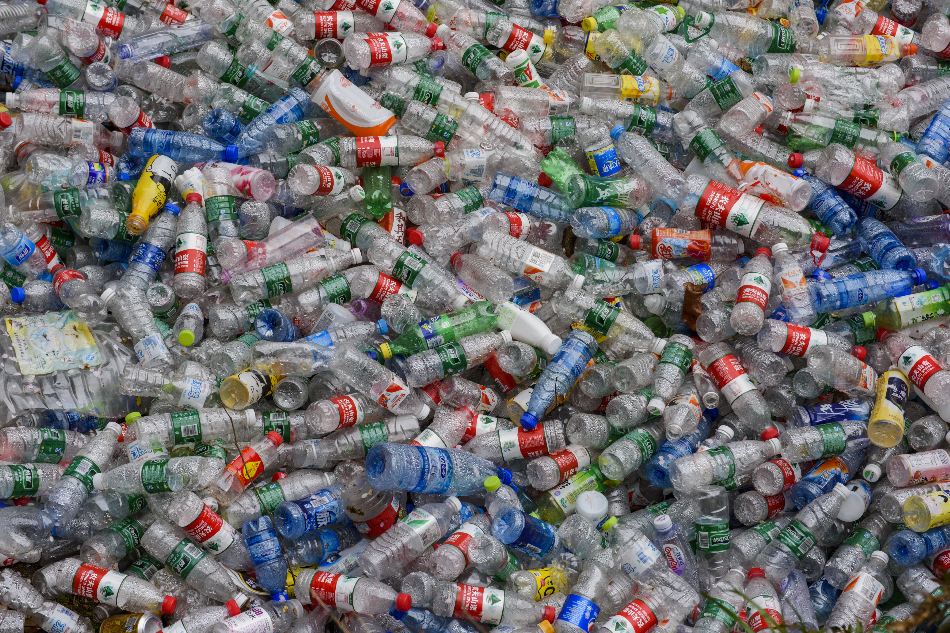
Image Credit: Shutterstock.com/ Creative Lab
China produces and exports the most plastics on the planet, in 2018 China contributed over 25% of global plastic production as well as taking position as the world’s number one polluter. Now, in an effort to address one of the country’s worst environmental issues, China vows to phase out single-use plastics over the next five years.
Effective immediately, the guidelines issued by The National Development and Reform Commission and the Ministry of Ecology and Environment, declare plastic bags will be banned in supermarkets and large retailers in all major cities by the end of this year. The ban is expected to become nationwide by the year 2022, however, small market retailers trading in fresh produce have been given the extended target of 2025.
While the new policy states the restaurant industry must cease issuing single-use plastic straws this year, other single-use plastics such as food takeaway food containers and plastic utensils will be phased out over an extended period. By 2025, the policy states that total plastic consumption in the restaurant industry in towns and cities across China must be reduced by 30%.
Catching Up With The Rest of The World
In recent years, widespread global concern considering plastic pollution has seen a growing number of policymakers initiating change to tackle the problem. Just last year California state issued some of the most radical laws in the US concerning plastic usage. China’s latest policy is considered to be a move to follow in the EU’s footsteps of helping solve the plastic crisis according to BloombergNEF analyst, Leililang Zheng. “China is catching up with the rest of world,” Zheng stated.
However, this is not the first move China has made in addressing the issue of plastic pollution. Back in 2017, the country imposed strong restrictions prohibiting the import of foreign waste, including a large number of items containing plastic. A move that led to some scientists and researchers asking the question, where will the waste go now? The new policy now includes a blanket ban on the import of any type of plastic waste from outside territories meaning other countries will be compelled to rethink waste management solutions where plastic is concerned.
China has already started to accelerate recycling rates as a mandatory scheme is being piloted in major cities, including Shanghai. By building new “comprehensive resource utilization” stations, the country is aiming to ensure more items are being reused or recycled to reduce the scale of plastic garbage that ends up in landfill or dumped in rivers.
More to Be Done
It is estimated that over 8.8 metric tons of plastic waste end up in the world’s oceans each year, 2.4 metric tons of which come from China. Furthermore, according to a 2017 study, 1.5 million metric tons of waste flows from the Yangtze River into the Yellow Sea – the largest amount of any river in the world. While China’s latest guidelines will no doubt be welcomed by environmental groups, there is still more to be done as according to UN statistics we produce about 300 million tons of plastic waste each year – almost equivalent to the weight of the entire human population.
The same UN guidelines state the flow of plastic needs to be tackled at the source as well as the management of waste. If current global trends continue, by the year 2050 we could end up with more plastic than fish in our oceans.
With the new policy in place, China’s latest regulations are likely to curb the rate of plastic production and could have a significant impact on the oil industry. “The new policy will suppress demand for plastics, a potential risk for oil and chemical companies,” Zheng told Bloomberg.
More governments are “waking up” to the problem of plastic pollution with a global increase on the number of levies and outright ban of plastics. One of the major themes of last year’s World Environment Day was #BeatPlasticPollution as the call continues to increase awareness on the impact plastic waste and production has on the environment.
Disclaimer: The views expressed here are those of the author expressed in their private capacity and do not necessarily represent the views of AZoM.com Limited T/A AZoNetwork the owner and operator of this website. This disclaimer forms part of the Terms and conditions of use of this website.